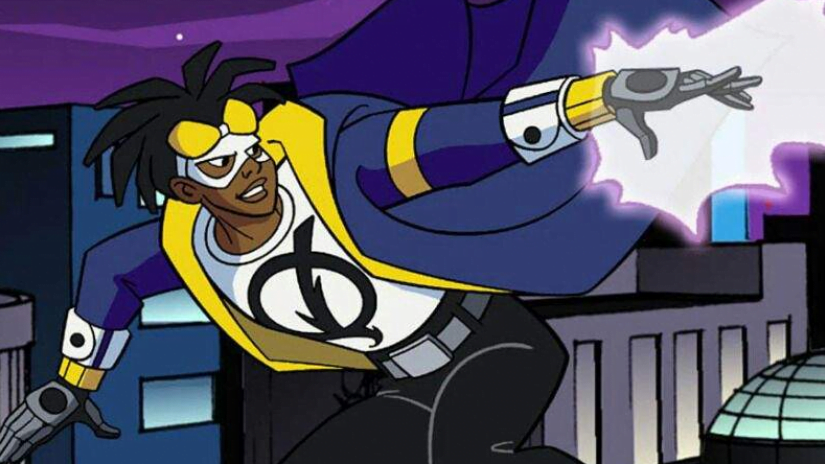
It’s hard to believe it’s been seventeen years since the show “Static Shock” first aired, so that makes it a perfect candidate for Throwback Thursday, ScienceFiction.com’s ongoing column dedicated to the great science fiction of the past.
I will be the first to admit that a lot of the sheen on this show has worn off in the last seventeen years, but I still think it’s an important milestone for cartoons and comic alike. Plus, if I put my “I still live in 2000 and I’m a young adult glasses on”, I still enjoy the heck out of it.
Originally created as a Spiderman-like character for Milestone comics, an independent imprint under DC Comics known for have greater representation in its heroes, “Static” featured a young African-American geek named Virgil who accidentally is affected by the “Big Bang”, the name for the event that gave people mutant powers. Unsurprisingly, for a name like Static, his powers dealt with electricity (absorbing and dispersing) and magnetism. Though it was created in 1993, it took seven years for it to make it to television. Not bad when you think how long it took “X-Men” to get animated, and it was not nearly the quality of “Static Shock.”
As a part of the WB’s Saturday morning cartoons, “Static Shock” became a staple for kids along with other great shows like “Jackie Chan Adventures” and “Batman Beyond”. Some of the storylines from the original comic books were watered down for the younger audience (guns appear less, and Rick Stone becomes “Richie” and his coming-out storyline is abandoned, for example), but the show kept a large part of its heart despite being presented to a mainstream audience. In a time when racism was thought to be a thing of the past, “Static Shock” showed what a diverse show could be like, and the challenges minorities still faced. Was it perfect? No. No science fiction ever is, but the wealth of positive representation in the show certainly makes it culturally important.
As for the storyline, it mostly followed Virgil, and how he juggled his responsibilities to his family, his friends, his school, and his sense of justice. While that is a typical plot device for comic book heroes, it was made unique by its characters who not what kids were used to seeing on screen.
Virgil’s character tends to be what makes the show (and hey, he’s voiced by Phil LaMarr, so big bonus points there), and he’s what makes the comic books good. So if you’re looking for heavy duty science fiction, this may not be your cup of tea. However, you like a bit of nostalgia, a bit of diversity, and a great character, “Static Shock” may be the show for you.
